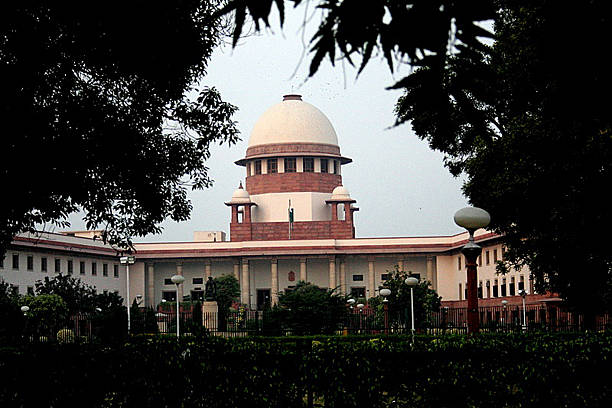On Friday, the Supreme Court will hear a slew of petitions challenging the constitutionality of the Centre’s electoral bonds scheme as a source of political funding.
After more than 18 months, the case was heard by the Supreme Court.The batch of five petitions, led by the NGO Association for Democratic Reforms, will be heard by a bench of justices BR Gavai and BV Nagarathna (ADR).
The Supreme Court rejected two stay applications filed by ADR in March 2021 to halt the sale of electoral bonds ahead of elections in West Bengal, Tamil Nadu, Assam, Kerala, and Puducherry.It ruled that there was no reason to halt their sale due to concerns about anonymity in political party funding or fears about their misuse, and that the sale had continued “without any impediment” in 2018, 2019, and 2020.
Previously, in April 2019, the Supreme Court imposed an interim “safeguard” by directing all political parties to submit details of electoral bond receipts to the Election Commission of India (ECI) in a sealed cover. This was done as a stopgap measure until the pending petitions challenging the constitutionality of these electoral bonds were resolved.
At the time, the ECI supported the existing system of political party funding through electoral bonds, though it noted a lack of transparency, which it said could be addressed later. The electoral bonds system was implemented through a money bill that amended the Finance Act and the Representation of the Peoples Act.
According to the ADR, such an anonymous route of funding legitimises bribery because corporates can fund the party in power in a state or the Centre as a matter of quid pro quo. These donations are tax-free, and foreign corporations can donate through Indian subsidiaries, according to the petitioner.
“The Electoral Bonds Scheme has opened the floodgates to unlimited corporate donations to political parties and anonymous financing by Indian as well as foreign companies which can have serious repercussions on the Indian democracy,” the ADR claimed, adding that the Finance Act of 2017 exempts contributions by way of electoral bonds to be disclosed to the EC under Section 29C of the Representation of Peoples Act.
Petitioners from the CPI(M) and advocate Ashwini Upadhyay have also raised concerns about electoral bonds, and their petitions have been tagged with the ADR’s.







